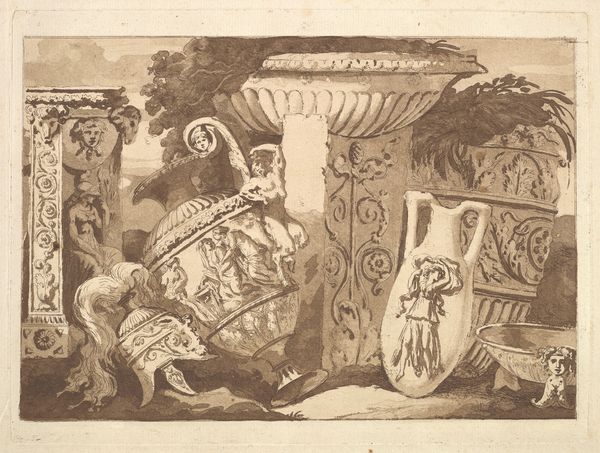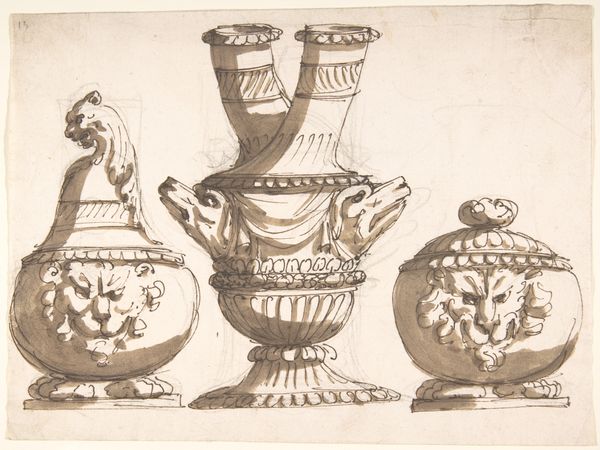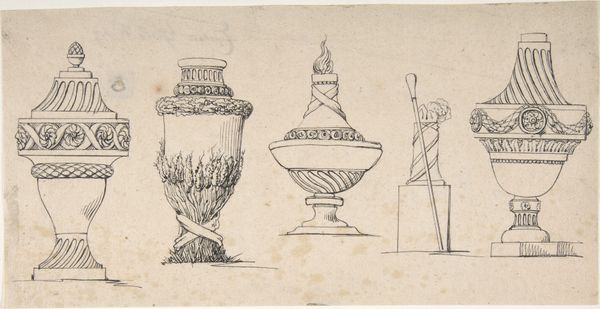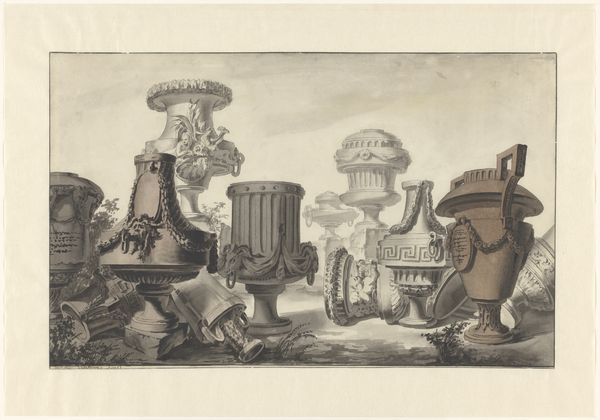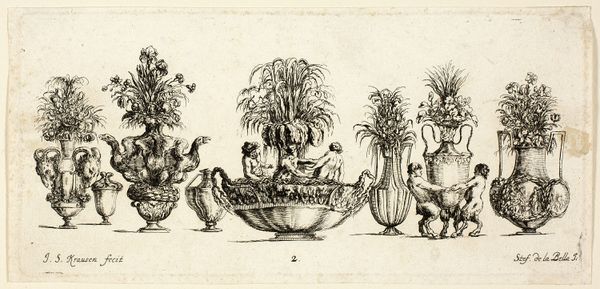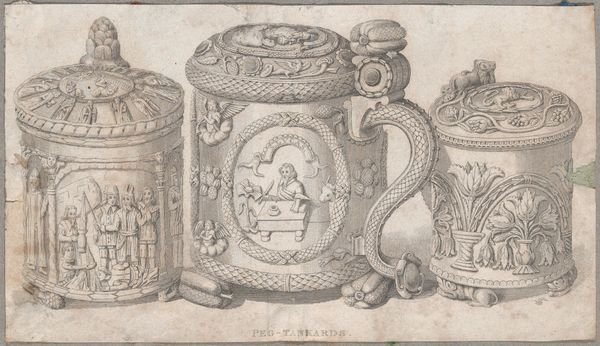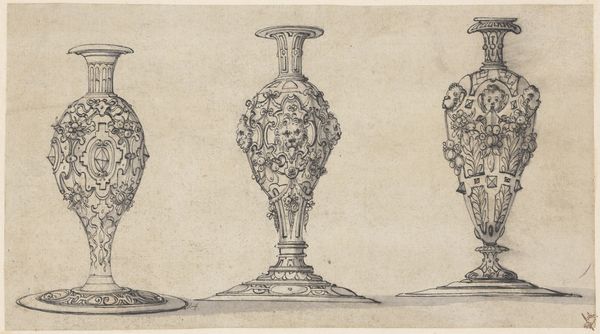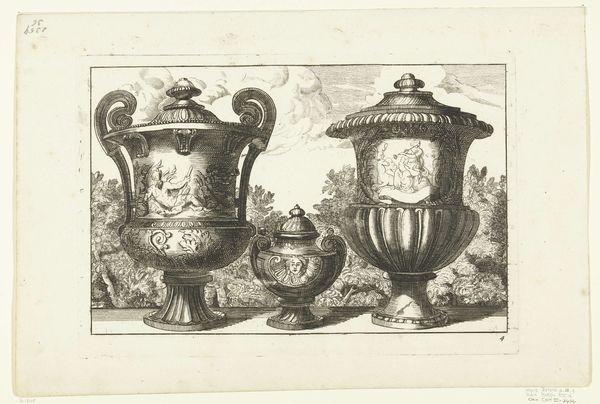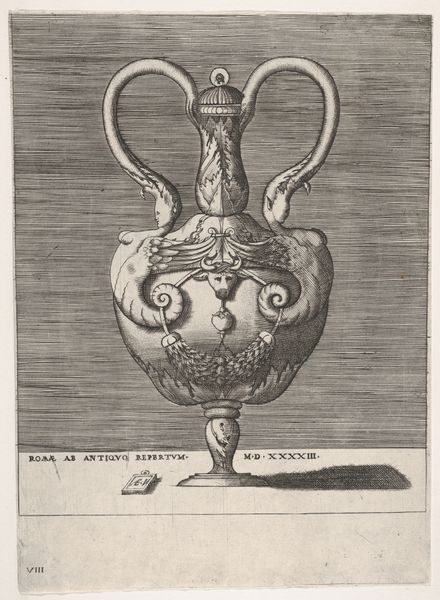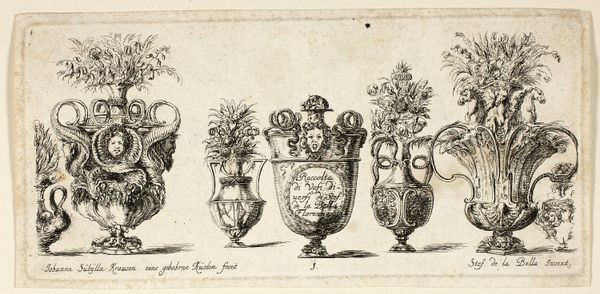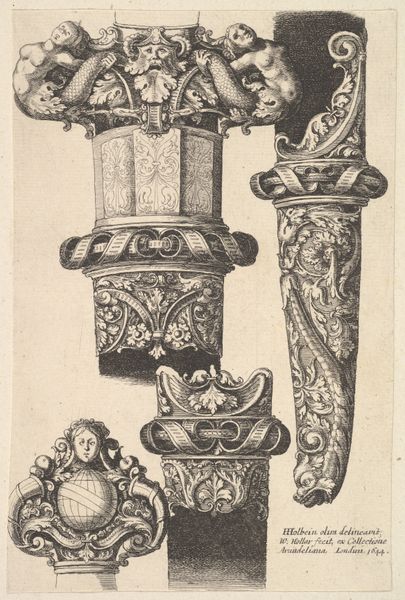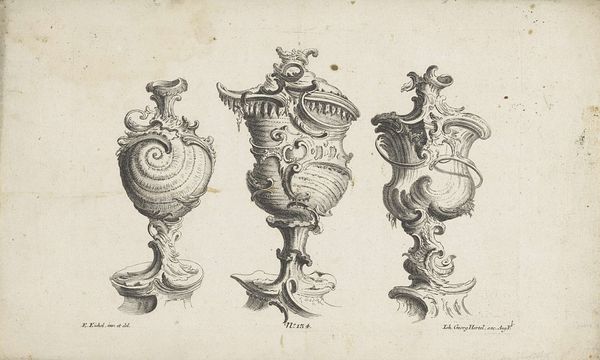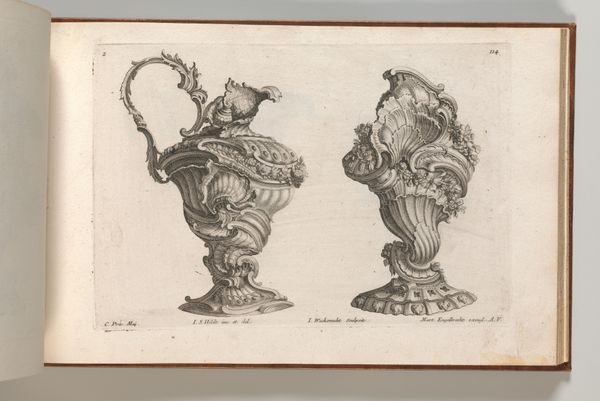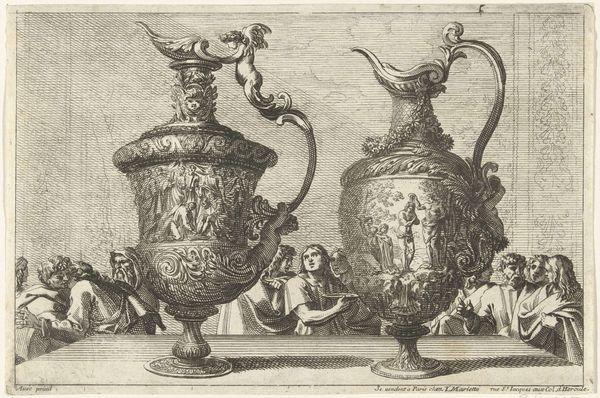
drawing, print, etching
#
drawing
#
pen drawing
#
neoclassicism
# print
#
etching
#
vase
#
figuration
#
history-painting
Dimensions: sheet: 4 15/16 x 7 5/8 in. (12.5 x 19.3 cm)
Copyright: Public Domain
Editor: Here we have Jean Jacques Lagrenée’s 1765 etching, “Fragments of Antiquity,” currently residing at the Metropolitan Museum of Art. I’m really struck by how cluttered it is, but not in a bad way, like an attic full of interesting artifacts. How do you interpret this kind of collection of ancient objects? Curator: It feels like a memory palace, doesn’t it? As if Lagrenée wasn't just documenting these objects, but conjuring them from some forgotten corner of his imagination. He arranges these "fragments" like actors on a stage, hinting at grander narratives, perhaps a lost play or a whispered legend. And the very deliberate use of line, the meticulous detail...it's like he's inviting us to piece together the puzzle of antiquity ourselves. Do you find that the medium contributes to that sense of historical distance? Editor: Absolutely! The etching makes it feel almost archaeological, like we're seeing an imprint or a ghostly echo of the past. All of the elements point towards a recreation or preservation, what do you make of the use of objects like the vessels depicted here? Curator: Yes, precisely! Consider the vases, for example. Each one bears witness to lives lived, stories told, secrets kept. Their fragmented state only deepens the mystery. These are more than mere objects, they’re containers of memory, holding echoes of laughter and loss, of empires risen and fallen. And notice how Lagrenée imbues them with a sense of melancholy grace. Editor: It really does invite contemplation. Seeing the remnants, it makes you wonder about everything that’s been lost, but also appreciate what's survived. Curator: A delightful tension between loss and rediscovery, don't you think? Perhaps the point isn't to reconstruct the past perfectly, but to find ourselves in the fragments that remain.
Comments
No comments
Be the first to comment and join the conversation on the ultimate creative platform.
